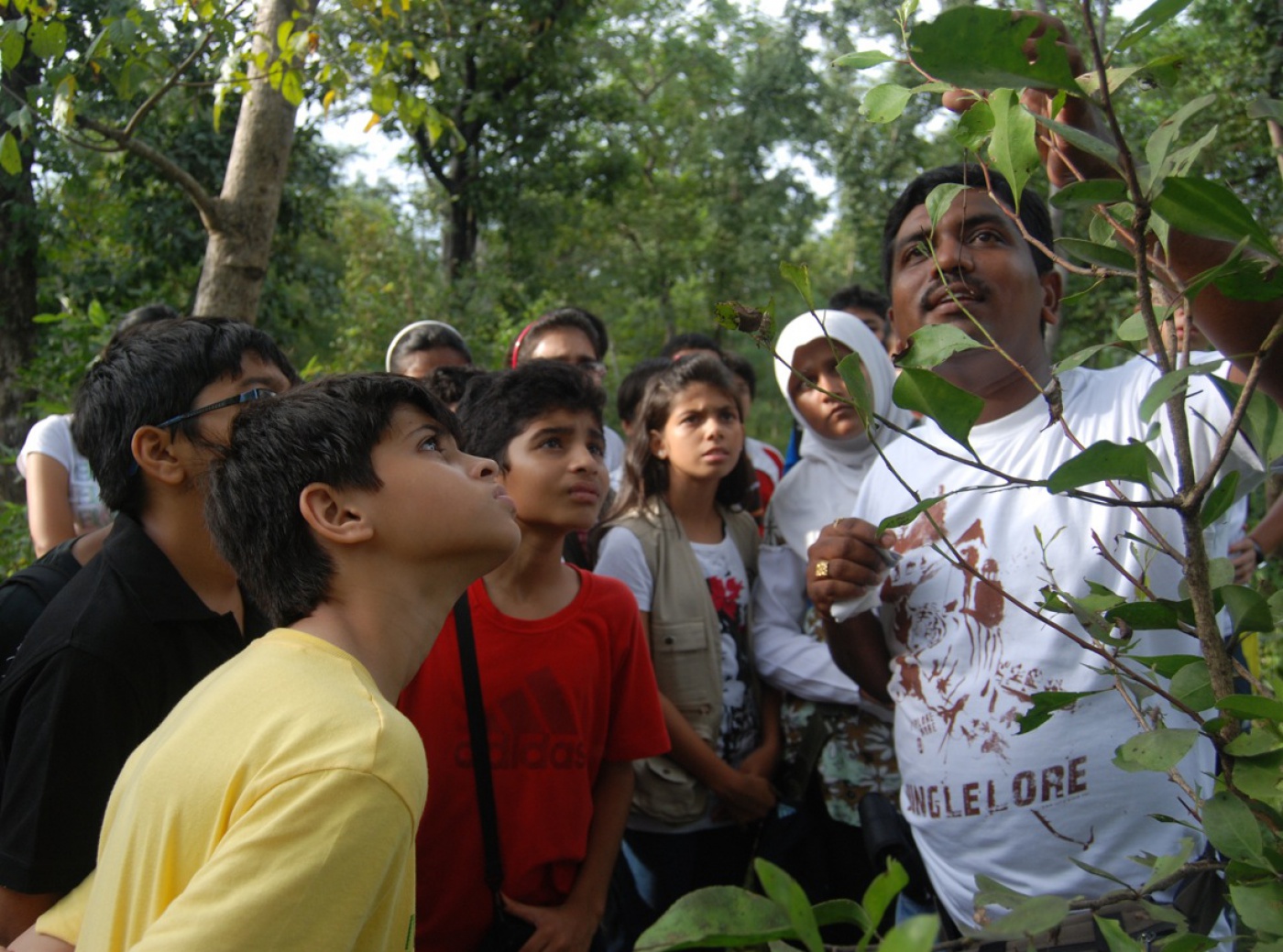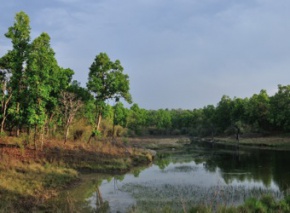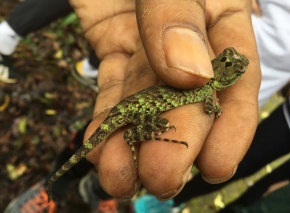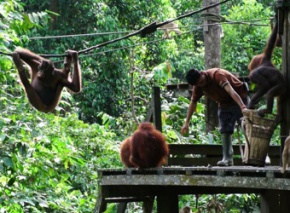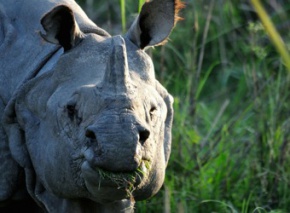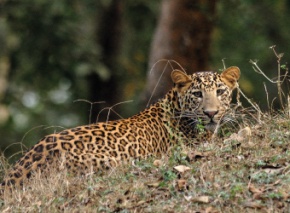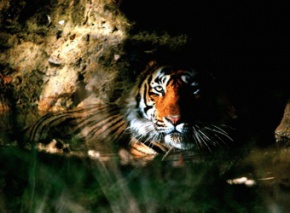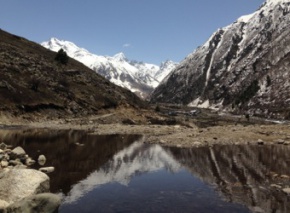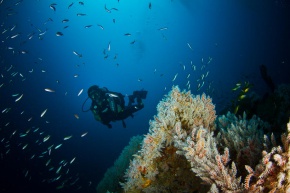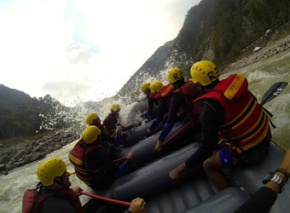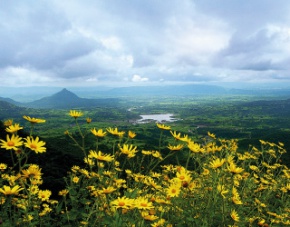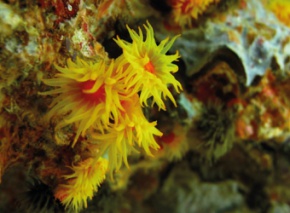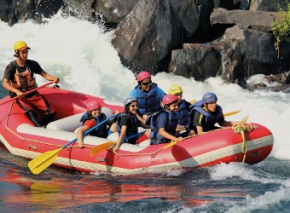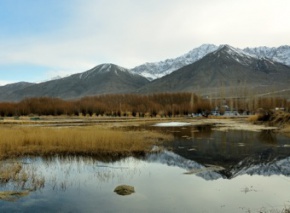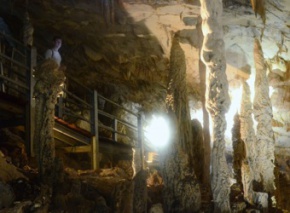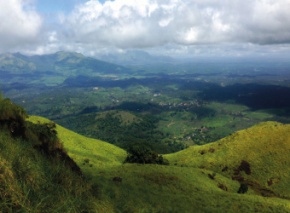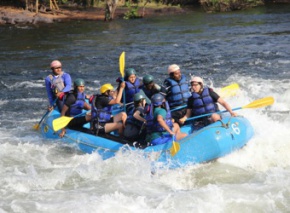
A trip to Pench National Park should at least be 4 night and 5 days so that it allows students to explore these activities curated for this module comfortably, with clear learning outcomes.
Given below are a few activities that can be conducted at this destination, along with the appropriate age group. Our forte is customisation, so feel free to select ONE, ALL or ANY combination of these activities to design a trip unique to your curriculum and experiential learning needs.
This expedition is focussed on habitat discovery and introduction. It offers an in-depth understanding of the dry deciduous teak dominated forests of Pench. Students will also discover the role of varied wild species in the forest ecosystem. Additionally, they will explore the geographical significance and relevance of Pench River to the forest ecology and why this famous forest is revered as the land that inspired famous author and explorer, Rudyard Kipling to write the fabled 'Jungle Book'. It also offers exposure to the role and perspectives of the forest department in tiger conservation operations. Furthermore, students will interact with tribal communities living in the park fringe areas, to understand their challenges and way of life.
Jeep safaris through this southern tropical dry deciduous forest will allow students to observe the natural flora which is characterised with large stretches of Teak trees. Bamboo also occurs sparsely, restricted to some valleys. With the distinction of a reserve with the highest density of large herbivores, Pench will definitely not disappoint in terms of game viewing. These populations of spotted deer Sambar deer, Barking deer, Nilgai and wild boars support a significant density of predators such as Tigers and Leopards.
Students will learn about the park history, division of topography, various aspects of Tiger behaviour such as their natural instincts, Flehmenn’s response, prey-predator relationships, hunting techniques and information about resident tigers, their territories, age etc. Students will also learn about the park’s famous celebrity tigers and see some cutting edge footage shot over the years in the park. Students will also learn about Tiger conservation actions implemented in the region.
Nature walking trails around the park will focus on studying the regions’ macro flora and fauna, typically those that are not easily spotted during jeep safaris. Students will be able to focus more on the kind of trees that dominate the deciduous habitat and their role in the eco system.
Bio-mimicry essentially is sustainable innovation inspired by nature. Living organisms have evolved in well-adapted structures and materials over geological time through evolution. Through this workshop, students will learn about various instances where humans have improved design by imitating nature.
In the vicinity of the park, lies a pottery village, where everyone in the village makes a living through the traditional art form of pottery. The students will learn the skill of creating their own pottery articles from expert local potters. We can also design socio-economic learning modules based on this village interaction where for e.g. students can conduct a survey to understand the economics and dependencies of the village communities on this ancient art form.
Several rural communities live on the park fringes. We design interaction modules depending on student age group, which vary from understanding the role of nature conservation and how it impacts these communities. Through meaningful interaction, students will understand the traditional values and lifestyles of these communities and also implement impact based service initiatives aimed to improve the lives of these communities and promote sustainable lifestyle.
CONSERVATION CONCERN
Located in the Central Indian state of Madhya Pradesh, the Kanha-Pench corridor is one of the most important forest corridors in India and facilitates tiger dispersal between Kanha and Pench Tiger Reserves. It covers an area of 16,000 sq km and acts as a refuge for several other mammals such as wild dogs, sloth bear, leopard, hyena, jackal, and sambar to name a few. A tiger passing through a corridor forest has to confront a range of challenges such as hostile villagers, retaliatory poisoning of livestock kills, poaching of tigers and prey, electrocution by live wires, apart from road and rail traffic. The widening of railway lines and construction and widening of roads in such a corridor will result in fragmentation of the corridor and thereby make dispersal all the more difficult for tigers and other animals that use the corridor.
Such corridors are vital for the long term survival and viability of tigers as they connect smaller tiger populations (eg. Pench and Achanakmar) to larger source populations such as Kanha. Without these linkages tiger populations isolated within individual tiger reserves face the risk of extinction due to poaching and loss in genetic vigour over generations.

Related Destinations

Region: India
Active Modules: Terrestrial Ecosystem Exploration, Project Based Trips, Life Skills Expeditions

Region: India
Active Modules: Terrestrial Ecosystem Exploration

Region: India
Active Modules: Terrestrial Ecosystem Exploration, Service and Sustainability

Region: India
Active Modules: Terrestrial Ecosystem Exploration, Project Based Trips, Service and Sustainability

Region: Borneo
Active Modules: Terrestrial Ecosystem Exploration, Project Based Trips

Region: India
Active Modules: Terrestrial Ecosystem Exploration, Project Based Trips

Region: India
Active Modules: Terrestrial Ecosystem Exploration, Project Based Trips, Service and Sustainability

Region: India
Active Modules: Life Skills Expeditions, Project Based Trips, Service and Sustainability

Region: India
Active Modules: Marine Ecosystem Exploration, Project Based Trips, Service and Sustainability

Region: India
Active Modules: Marine Ecosystem Exploration, Life Skills Expeditions

Region: India
Active Modules: Life Skills Expeditions, Project Based Trips

Region: Sri Lanka
Active Modules: Marine Ecosystem Exploration, Project Based Trips

Region: India
Active Modules: Life Skills Expeditions, Project Based Trips, Service and Sustainability

Region: India
Active Modules: Life Skills Expeditions, Service and Sustainability

Region: Thailand
Active Modules: Marine Ecosystem Exploration, Service and Sustainability, Project Based Trips

Region: India
Active Modules: Life Skills Expeditions, Project Based Trips, Service and Sustainability, Terrestrial Ecosystem Exploration

Region: Vietnam
Active Modules: Life Skills Expeditions, Service and Sustainability

Region: Borneo
Active Modules: Speleology Expeditions, Life Skills Expeditions, Service and Sustainability

Region: Borneo
Active Modules: Life Skills Expeditions, Service and Sustainability, Marine Ecosystem Exploration

Region: Greece
Active Modules: Marine Ecosystem Exploration, Life Skills Expeditions, Service and Sustainability, Project Based Trips

Region: India
Active Modules: Project Based Trips, Life Skills Expeditions, Service and Sustainability, Terrestrial Ecosystem Exploration

Region: India
Active Modules: Life Skills Expeditions, Project Based Trips, Service and Sustainability
